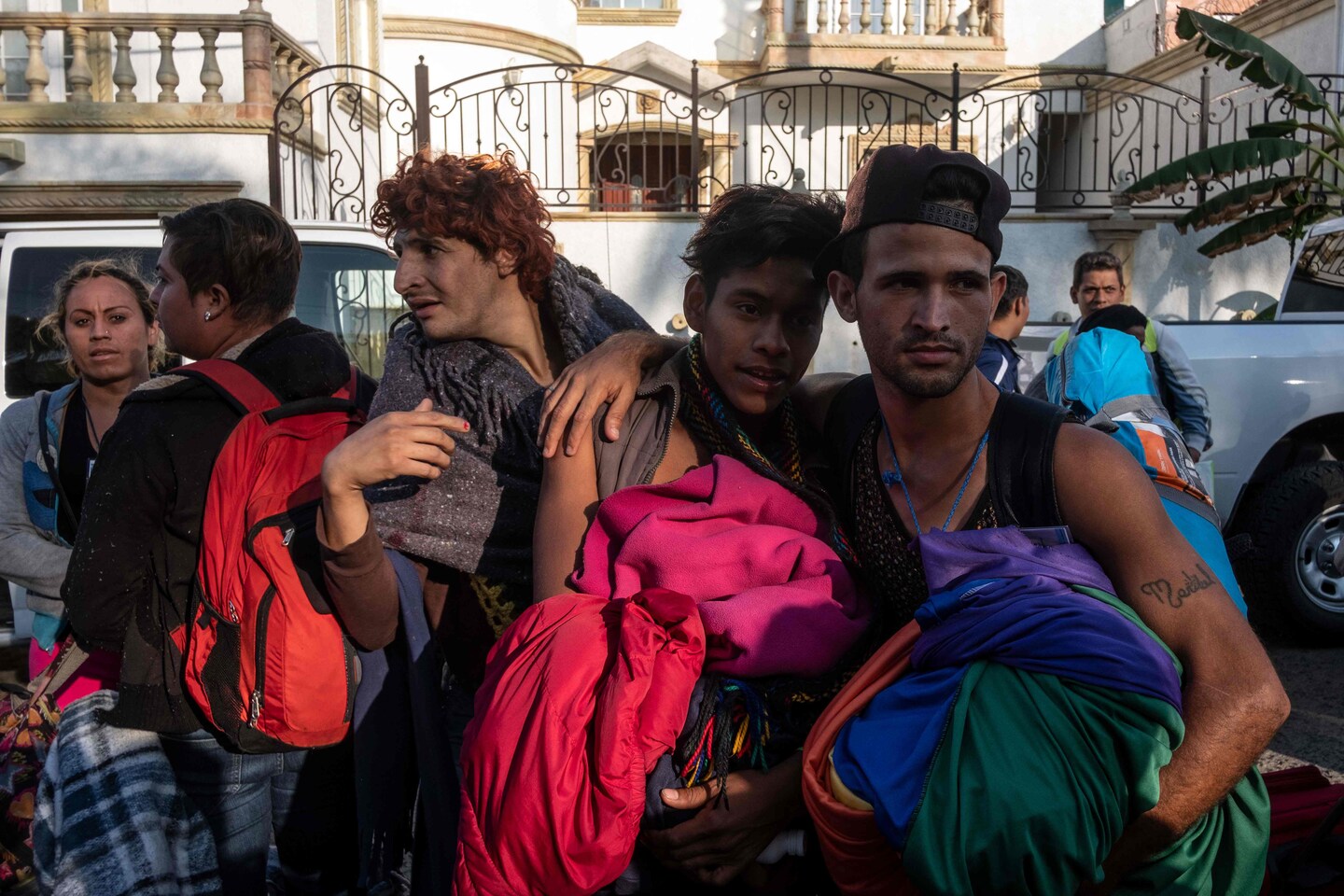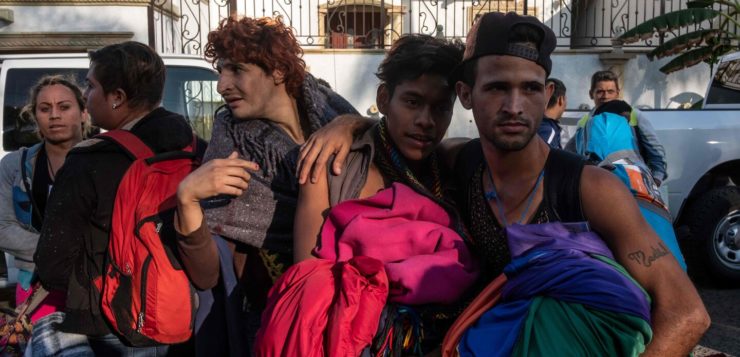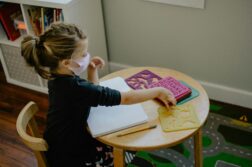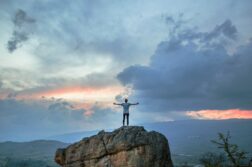
HERE IS THE STORY of my journey to America as a gay asylum seeker.
It was my birthday in 2016. Early in the morning night, I was startled awake by a loud noise. “Edafe! Edafe!” voices chanted from outside. “Open the door! We know you are gay, and we are going to kill you!” Members of a local hate group had gathered outside as a mob. The community where I lived in gathered and made me a target. I woke up with my heart pounding through my chest. I could not. I knew I needed to move quickly, but I was paralyzed. I thought I could run through the back window if they were at the front of my building. In just my underwear, I raced to the window, ready to jump. But my house had been surrounded by a mob of people.
Soon, they had broken down my door and dragged me into the streets. I was flogged with sticks, cutlasses, and anything else they could find, beating me unconscious while children sang and cheered and clapped behind us. Gay! Gay! Gay!
When I woke up in the clinic, I was confused. I worried I would not recover from the attack. I was told a good Samaritan had saved me, which was only a slight relief compared to the terrible pain I felt all over my body. If there is a God, they just saved me, I remember thinking. I wondered then if my family knew—about what happened to me, about why it happened.
Though there were so many mysteries about the attack, I knew one thing for certain: I wouldn’t be alive much longer if I stayed in Nigeria.
I fled to the United Arab Emirates, but had to return to Nigeria because I could not seek asylum there as a gay person. Two months passed like a breeze. I was just pushing paper, making money to help pay Uche’s rent, and minding my business and my safety. One day in October of 2016, I was in my office, digging through a pile of paperwork, when my phone buzzed. It was a text from Uche.
“Edafe, where are you?”
“I’m in the office,” I replied.
“You have to leave now!” This message followed with a link to an article. Apparently, I was being given an award for my work as a grassroots advocate for the MSM (men who have sex with men) community. What should have been a proud moment quickly turned dark. Because of the Same Marriage Prohibition Act (SSMPA), community members were encouraged to alert local authorities to known homosexuals. And the article was already online. I could be turned into the police, or killed.
This single blazing moment brought the end of my life in Nigeria. I had to run—the further, the better. I found myself running toward the highway, shouting and flailing my hands to hail a cab. When a cab finally stopped, the driver asked me where I was going. Though I was staying with Uche, I’d left my documents behind at my apartment. We sped towards my place. A strange sensation dawned on me: my time in my home country had come to an end.
Fearing someone would recognize me, I asked the driver to wait outside while I gathered my things. I drew a file from under my mattress of all my certificates: diploma, birth certificate, the local government of origin card, and baptism certificate. I could only take enough clothing to fit into my backpack. I stood up to breathe and looked around. This was it. I found myself again leaving a place I had called home.
I had the cab take me to Uche’s place a few miles away, where I could stay for a few days before anyone would suspect he was hiding me. None of my family knew where I was. I wanted to call them, especially my mother, to tell her I was leaving with no plans to return. But I couldn’t risk my safety—or theirs. If I succeed in escaping, my mother would be able to speak to me one day. I wasn’t ready to give my life for my freedom. I wanted both. The real challenge lay on the other side of the Atlantic.
“What brings you to America?” the airport security guard asked me. He was a big, imposing man, with a clean-shaven head and a look on his face that betrayed nothing. Since I had a visitor’s visa, I said I came for a two-week vacation. The officer looked at my passport, looked up at me, and then stamped my passport. But then he lingered. He looked at me again and did not return my passport.
“Is everything okay?” I asked.
“You just need to undergo further inspection.” He stepped out of the box. “This way, sir, please follow me,” he said kindly.
From the airport, I was taken to a detention center. The process of seeking asylum is always complex, but I was utterly alone in America. Worse, no one back home knew where I was, and I couldn’t access my cellphone, which was taken from me before I entered the center. The calling cards from the center were very expensive, and I arrived in America with only $120. I worried about what my friends and family must have been thinking: Where was I? Was I safe? I thought especially of my mother, who was then living alone in Warri, hoping I would return from Abuja one day to come live nearby.
After five months and fourteen days, the day finally arrived. On April 18, 2017, an officer arrived to collect me. When I got into the court, the Judge asked; “What is your name and where are you from?” The questions progressed from easy answers—name and place of origin—to questions that took more thought. Why did I flee? Why wasn’t I safe in Nigeria?
The goal was to convince the judge that I was in peril and would remain so unless I could stay in America. The stakes were high, but the time to deliberate was brief. The judge would have only two hours to decide my fate.
“Edafe Okporo, please rise,” he said upon returning. “Thank you for your bravery and courage. I am granting you permission to live in America.”
Around the world queer people face danger just for living their lives. Some off us make the hard decision to flee our homes in the hope of finding a new home. My journey is not unique in this respect. I tell it now because I know how important it is for LGBT people facing oppression to find home and an opportunity to rebuild their lives.







Discussion1 Comment
As a fellow African, I salute you! This is a truly inspiring tale and I feel so few people in the West understand what this actually means.
Thank you